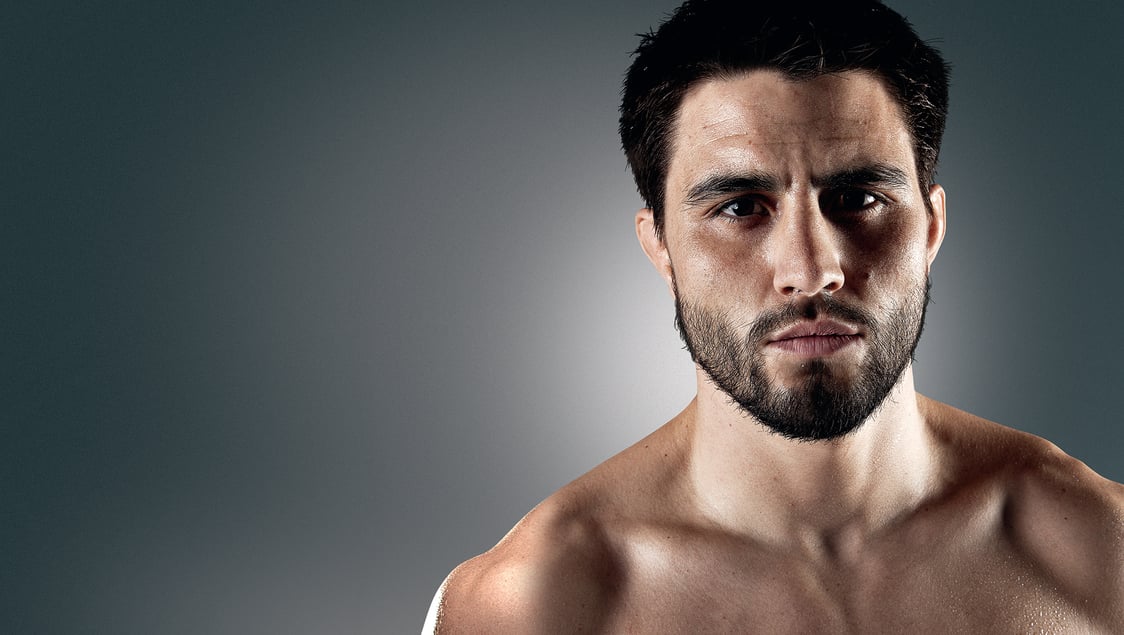
Issue 094
November 2012
Carlos Condit isn’t the middle-class maverick you thought he was. He’s trade union stock, with the fighting heart to prove it, and, underdog or not, he’s out to silence his critics by spoiling Georges St Pierre’s return.
There has often been the misguided assumption Carlos Condit comes from a blue-chip, old-money family. That he has found himself on the wrong side of an existence that, by right, should have seen him gather a vast inheritance, or become an erudite scholar, lawyer, or politico.
Never judge a book by its cover, however. Nor, indeed, a ‘Natural Born Killer’ as having been born with a silver spoon in its mouth. His father, Brian, was the chief of staff for former New Mexico governor and Democratic presidential candidate Bill Richardson, seemingly one of the anomalies accompanying Condit into the Octagon of the Ultimate Fighting Championship.
It summons up images of another world – palatial quarters, kids growing up in neck-ties and scooting around lavish cocktail parties on visits home from their privileged private education. Yet, as Condit reveals in an exclusive interview with Fighters Only, and as he closes in on the battle of his life against Georges St Pierre for the UFC welterweight title, that backdrop could not be further from the truth.
He’s from blue-collar stock, union men; as familiar with bar brawls as they are fighting for their rights. The Primetime TV countdown series before Condit faced Nick Diaz earlier this year focused more on the mind and heritage of Diaz, whilst painting a picture of Condit from a balanced, middle-class background. Dig deeper, though, and the truth comes to the surface.
“Actually, that’s kind of a misconception about my dad,” Condit begins, when I enquire about the preconceived route he had into MMA. “The way he got into politics was through working. He was an electrician for 25 years and got involved in the labor unions, and then got involved in politics.
“My uncle was working as an electrician as well, so was my grandfather. They were kind of blue-collar guys, a little rough around the edges. They did judo and they wrestled, and they got into their own fair share of bar scraps in their day.”
Brian, his father, certainly came across as a man who could look after himself. “As I’ve said, he was a fighter and so was my uncle, so it’s not a big departure from them. I would say I definitely fit in with them, more than I don’t. Some people do get involved in politics because they come from real wealthy families. But maybe that’s the problem with politics…”
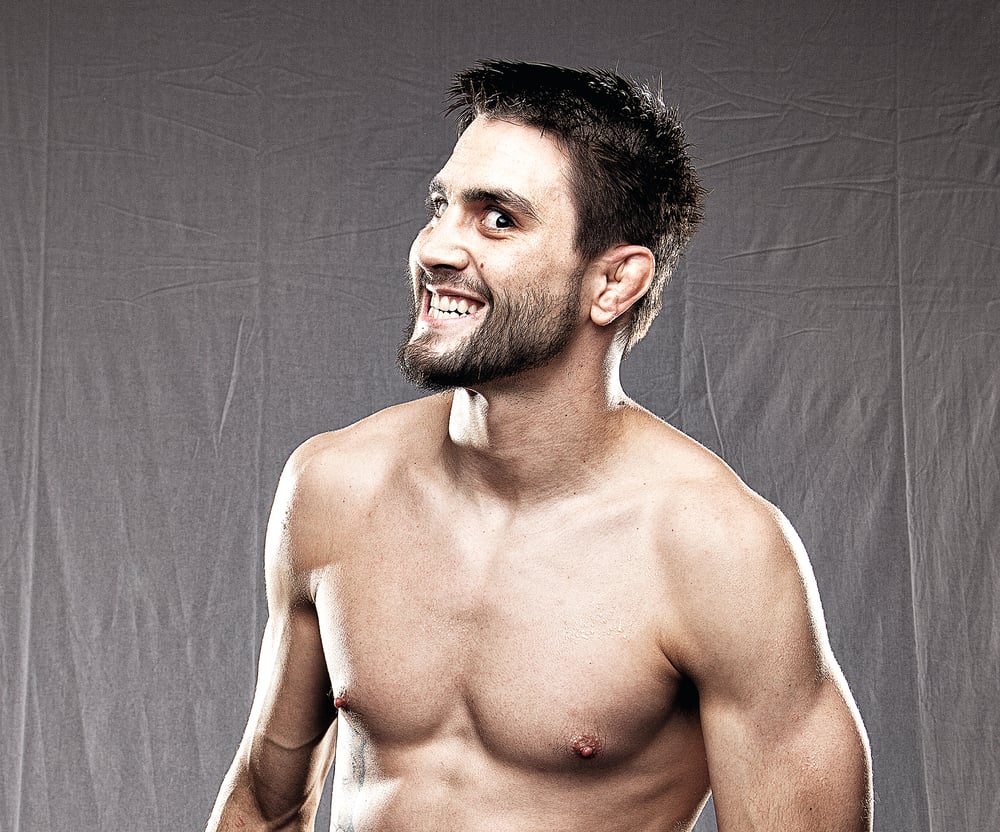
That explains a great deal about the fighter, a quiet man not given to great outbursts of trash talk or, for that matter, emotion. So, where did the interest in sport begin, where did the desire to test himself in the toughest sporting arena on earth first germinate?
“I think my oldest recollection of sport is watching my dad play softball for his work team, back in the day,” recalls the UFC’s 170lb interim champion. “I was maybe, like, three years old and at the time it was baseball, because my dad was playing softball and baseball. So the first sport I did was tee-ball. It’s like baseball, but they put the ball on tee, because you are, like, aged four.
“It didn’t do a lot for me. I really wasn’t into it, once I’d got playing. I played soccer and I was on the swim team, but I wasn’t really into those sports. The first time I started really caring about winning was when I started wrestling. When I was about nine.” Like so many other Americans making waves in MMA, it was the tipping point for him.
“Yeah, the other sports were OK. I’m glad I did them because they added to my overall athleticism. But as soon as I started wrestling, I thought, ‘This is it, this is what I want to do.’ I was always a rougher kid, even when playing soccer the coach put me as the goalkeeper, so I couldn’t hurt the other kids.”
He continues: “I was always interested in martial arts. My dad tried to put me into wrestling as a very young kid, but at the time they didn’t have wrestling for under sevens. I was always pretty rough-and-tumble, always fairly aggressive, and when I finally started wrestling, I was wrestling kids who were quite a bit older than me.”
He loved it, he’d found his métier. As he grew through his teenage years, so his interest in mixed martial arts grew also. “I’d always gravitated towards combat sports and contact sports, but when I started training mixed martial arts, it was something I felt I was made to do right off the bat. I loved it. The thing about it was people weren’t making a good living doing it at the time, it wasn’t ever like, ‘You know, I’m going to go and do this for a living…’ There just didn’t seem to be a career in it.
“Honestly I didn’t think that far ahead. I was loving what I was doing, from the very start, from the very first day that I walked into the dojo. I knew this was it, this is what I wanted to do.” He was nine years old when he first saw a UFC event. “I can remember it vividly. I walked into the offices of my wrestling coaches at the time, and they were watching it. It was pay-per-view, either UFC 1 or 2.
“I walked into the office and I can see Royce Gracie choking someone out with his own gi, and at the time I was into Jean-Claude Van Damme movies, Bloodsport, that sort of thing, and then I go and watch this and I was like, ‘Wow, this is really happening? This is real?’ From the first time I saw it I was into it.”

Naturally, Royce became an early hero, and soon wrestling, for Condit, was transforming into jiu-jitsu followed with some kickboxing. “How could you not admire Royce?” he asks. “He was a grappler, just 180–190lb, but was submitting guys twice his size, I liked that.
“Then I liked the early Marco Ruas. He was one of the first guys who was well-versed in jiu-jitsu but also had good kickboxing. I think he was one of the more early prototypes for what we’re seeing now in our sport. He was very well rounded, a fighter with a wide range of skills.”
Likewise, Condit, the last WEC welterweight champion, has a strong all-round game that includes five of the most well-known fighting arts: Muay Thai, wrestling, jiu-jitsu, kickboxing, and boxing. Of late, jiu-jitsu has been at the forefront of his mind, and it has been an intense period over the summer, on the mat.
No game plans are being given away, but allowing for the propensity for GSP to take contests to the ground, it makes sense that Condit has been looking for the antidote.
“My ground game in jiu-jitsu has always been a big part of my success but I would say I have been successful with some of the stuff that I learned maybe six to 10 years ago.
“Just like MMA as a whole, jiu-jitsu is constantly evolving; there is new stuff and new techniques coming out all the time. So I’m just really trying to round out my jiu-jitsu game with the latest and greatest, the cutting edge of some submission techniques.
“I’m working with great jiu-jitsu coaches here in Albuquerque. A lot of great jiu-jitsu guys have come down here, and Greg Jackson is an amazing jiu-jitsu coach too. There’s a number of people working with me.”
And for the processes to become ingrained, they have to be drilled time and again. “There’s lots of drilling and getting the moves down, and also going live and trying to incorporate them in a fight, trying to utilize the moves whilst someone is actively resisting you.
“It’s pretty clear Georges likes to take guys down; he’s got great ground control. So that’ll definitely come in handy in that scenario, but in the bigger picture I’m always trying to improvise and evolve as a mixed martial artist and trying to be the best that I can be.”
The ‘interim’ discussion has burned brightly since GSP’s injury, and indeed, the UFC 170lb belt not having been defended since the stadium fight in front of 55,000 fans in Toronto at UFC 129. It seems like a very, very long time ago. And it was. It was April, last year. The belt not being defended for 18 months, gathering dust on a shelf, simply cannot be right.
When Condit fought Nick Diaz earlier this year, the debate raged over ‘interim’ and whether champions should give up their title if they haven’t defended it within a year. I put my theory to Condit that if a champion hasn’t fought a year, they should simply relinquish the title, with the option of first shot when they come back at the incumbent champion
Condit was not sure on his answer but admitted to his own grievances. “It’s been pretty frustrating. Luckily, GSP will be back in November and I’ll get another high-profile fight, another title fight in 2012. It’s been frustrating that Georges is the guy I want to fight, he is one of the top stars in the sport, and he is the welterweight champion. He just also happens to have been injured.
“That is my ultimate goal – to unify the titles. There are some other guys I’ve wanted to fight, too, of course, and I’ve had to weigh up the pros and cons of the situation. Now, ultimately, fighting against Georges in November was the best decision – but it took a lot of contemplation on my part.”
Like having to think your way through a chess game. We’ve seen plenty of other fighters’ title plans derailed by taking the wrong options as they ‘wait out’ the return of the champion, or suffer an injury. Anthony Pettis or Rashad Evans spring to mind.
Condit concurs: “You’ve got to look towards long-term success, the bigger picture. I’m very, very excited for the fight in November; this is something I’ve been working very hard on for the last decade. I feel like I’m as ready as I’ll ever be and I just can’t wait.
“Having Georges as my opponent definitely focuses my resolve and I know the task ahead of me and I know what I have to do to be able to compete with him. So in a way it’s definitely given me motivation and helped me to just focus on being the best that I can be.”
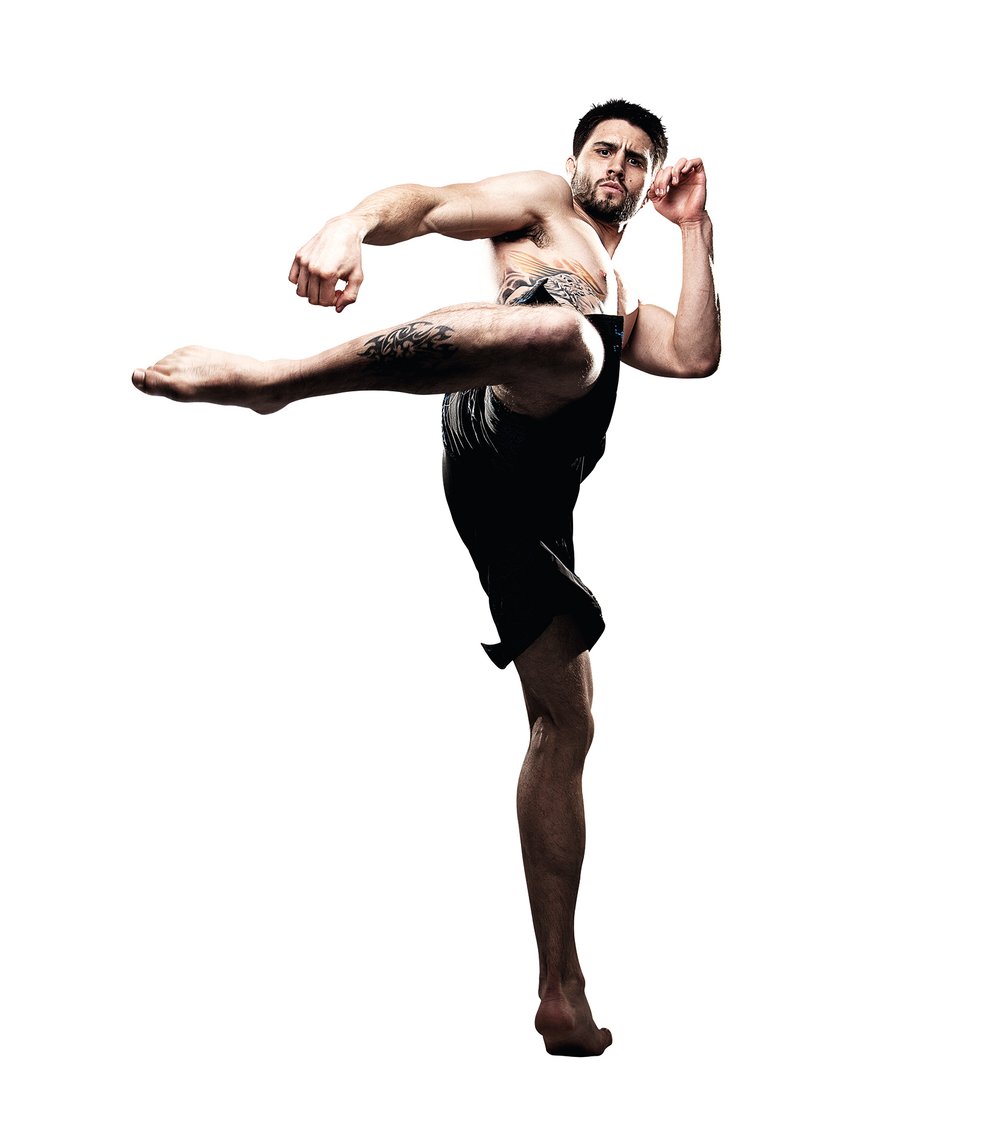
Many analysts within the sport believe Condit has the perfect skillset to defeat St Pierre. Iron-clad jaw, great striking, clever ground game, and the kind of self-belief to take him to victory against a champion emeritus, who has taken all but one of his last six title defenses the full distance – the exception is BJ Penn’s fourth-round TKO in January 2009. Condit adds: “I can beat him, yes. The question is, on November 17th, will I beat him? What I do in the final few weeks leading up to the fight are going to decide that.”
The two fighters have one thing in common: Greg Jackson. St Pierre has also used Jackson as a strategist, and so Condit must have trained alongside him during different periods in their careers, and over quite a long period of time too. “Actually, no, we’ve never really trained close to one another,” Condit states. “He’s been in the gym less than a handful of times when I’ve been there, and we’ve never really trained together. If anything, it’s really only been a couple of days where he’s been there and I’ve been there. So we really haven’t trained together at all.”
And on that handful of occasions they did work in one another’s company, Condit reveals there was certainly no heated rivalry or even psychological warfare taking place. “No, that kind of thing is really not really my MO,” he says with a chuckle. “I respect George as a fighter and as a person. It was cordial, he’s a respectful guy and I did nothing like that.”
And despite the fact Georges has been out of action for 18 months, being tagged as the underdog from the outset is actually a role the interim champion enjoys. Condit insists it feels natural for him to be the guy chasing the prize, despite the fact the belt is currently around his own waistline.
He says: “Psychologically, for me, I always like to see myself as the underdog, and I feel like, in this fight, I’ve got nothing to lose. I can just go out there and fight to the best of my abilities, no pressure, no pressure to win or to lose. He’s got the name, the clout and the status. I’m the challenger, and whether that’s the case, whether that’s what the odds makers say, in my mind that will probably be the place that I’ll be coming from.”
Condit has got to this point by blending his Natural Born Killer finishing instincts with clever strategy. He has the ability to submit or knock opponents out. His game has become neater and much more savvy. And he will go down in history as the final WEC welterweight champ, with an unblemished 5-0 run under that banner.
Victories over Rory MacDonald (great resilience), Dan Hardy (highlight reel KO), and Dong Hyun Kim (flying knee and punches) have projected Condit’s status. Then, with GSP’s injury, the rise of Nick Diaz landed them together inside the Octagon.
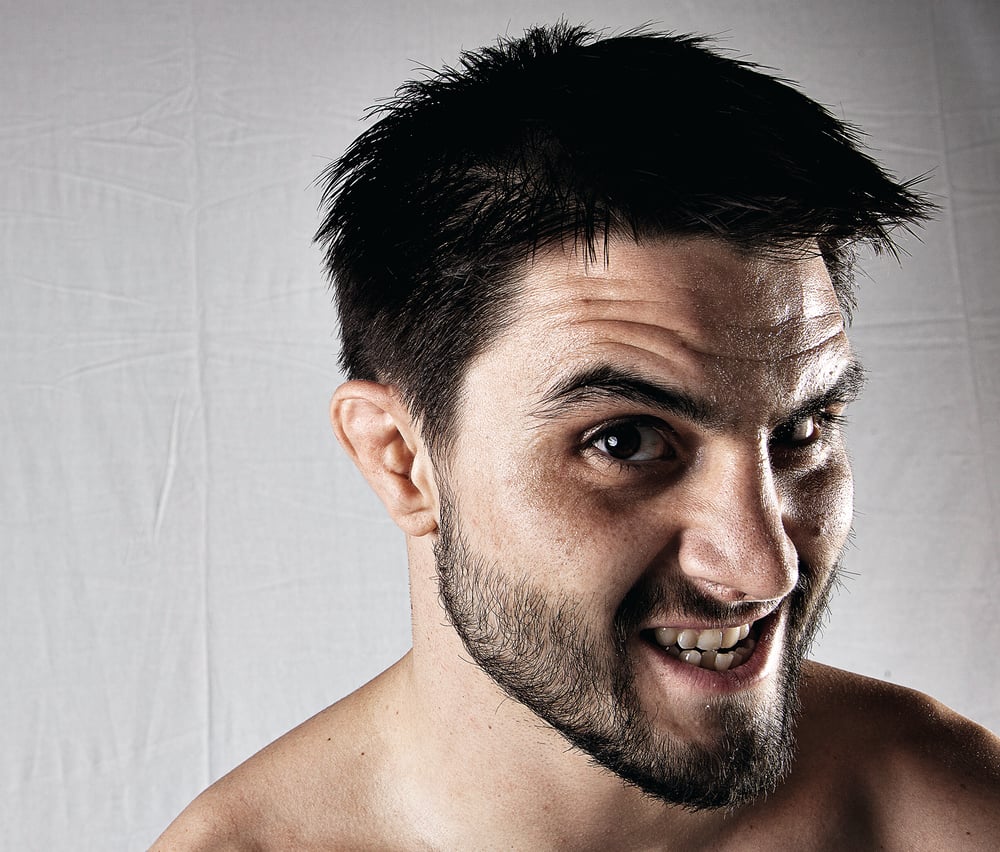
However, the criticism that followed Condit’s unanimous points success did come as a shock, he admits. “Initially I was, ‘I fought a good fight.’ But going back and watching the fight, I can see how people didn’t like the decision because some of the rounds are very close. As far as how my game plan went, people watch MMA to see different things, and I incorporated a very strategic fight. I try to play to my strengths, whilst staying away from my opponents’ strengths.
“My strategy definitely showed there are some holes in his game. Not enough that he needs to go back to the drawing board and shore up those deficiencies, but that night I was able to take advantage of that and come away with the win.”
Condit is also an intensely private person. Married to his longtime girlfriend, Seager Marie McCullah, they have a two-year-old son. We witnessed them moving into a new home in the Primetime episodes. Shrugging his shoulders, he adds: “I don’t know if they are filming again, But I imagine we will be. In all honesty, it’s not like it’s a fun thing to do. I’m a pretty private person and letting people into my life like that is difficult, but I do see it as just part of what I do for a living.
“We have to show who we are outside of the cage as well as putting on a show when we get inside... it’s just a part of life.” For Condit, when you’re baring your soul fighting for your life in the Octagon, a little intrusion seems a small price to pay for the ultimate reward. So what does the future hold beyond St Pierre and UFC 154 in Montreal?
“Right now, I’m thinking short-term. I’m thinking: fight Georges, unify this title. That’s really where my focus is right now,” he finishes. “MMA has been one of the greatest things to happen to me. But I’ve been competing professionally now for a decade, I’m at the pinnacle. After the fight with Georges I’m going to be in a better position to evaluate what I want to do.”
Condit on… Greg Jackson and gameplans
Carlos Condit admits he’s never worked with a sports psychologist, but explains how Greg Jackson’s coaching of a ‘warrior mindset’ has helped him. “I guess you’d say we are being taught to learn and to use a warrior mindset. It’s also just something I’ve developed over however many fights, 30-plus MMA fights, and 10 years of being involved in the sport.”
Jackson has a great reputation within the sport for strategizing, and Condit passed on some of the reasons why Jackson is so good. “Greg looks at each individual fight as a battle, and he being the general of team, our army, we approach it in that way,” Condit explains.
“So not only are we being physically prepared and prepared in our technical abilities, we have a solid strategy, because ultimately that’s what wins the fight. That approach – having a multi-faceted approach and being prepared on all levels is really the key to Greg’s success and the success of his fighters.”
Jackson is often criticized by fans because his game plans nullify the skillsets of his fighter’s opponents – take for example the way in which Condit defeated Nick Diaz – but is Condit of the view that ipso facto it is helping MMA become a ‘sport’ much more quickly?
“It is one approach and I think that’s where the sport is heading. You see all these other professional sports where that is how it is done. You have an offensive and defensive coordinator in the NFL, you analyze the other teams and their defense and their tendencies and formulate a game plan before, or decide which calls to do during the game. That’s basically where we’re going with it, because at the end of the day, it is winning that really matters.”
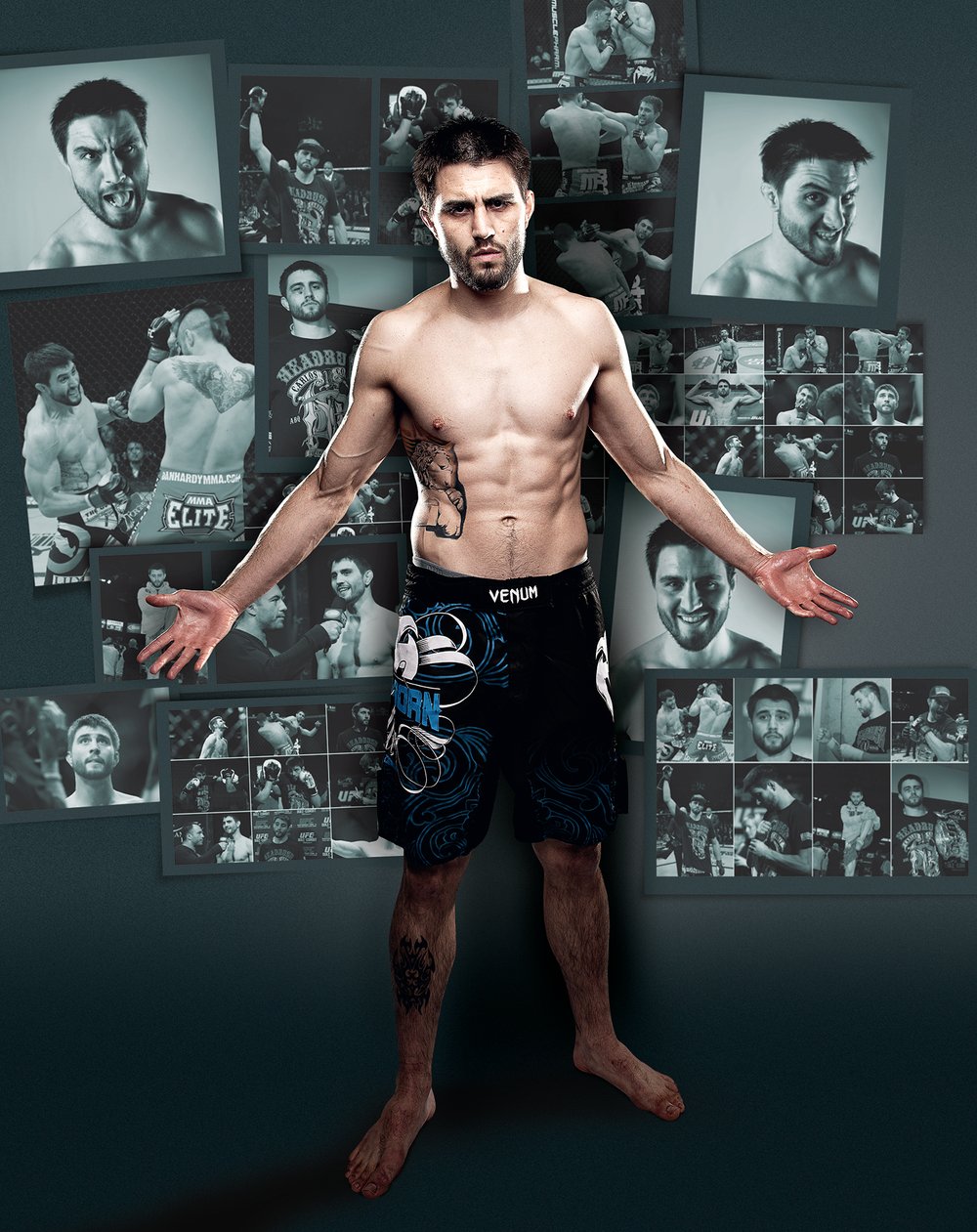
Condit on… his personal highlight reel
What are the best performances of your career, in your mind, for whatever reasons?
“Maybe my fight with Rory McDonald, just because of the fact I was fighting a good fight for the first two rounds, but he was edging me out and arguably he was winning on the scorecards.
“But I was able to turn the fight round in the third and really exhibit my tenacity, my will to win, my endurance and determination. I think all those things. It really showed my skills and my athleticism, and that’s all involved in the sport, when you kind of get down to those deeper human qualities, that’s really what MMA is about.”
You only find those out during those dark moments in the recesses of your mind and your spirit…
“Exactly. You get to see the measure of a man when he’s faced with adversity.”
You mentioned that there had been a couple of performances. What else would you pick out?
“The Nick Diaz fight, in a sense, was one of my best performances because I was able to really stick to a smart game plan and not get emotionally involved. Nick loves to get a guy upset, so he can stand in the pocket and brawl, which plays right into his game. I was able to stay emotionally detached, really disciplined and the game plan showed different aspects of my game.
“The Dong Hyun Kim fight obviously was a good performance against an undefeated fighter. The fight against Dan Hardy, I got to exhibit my stand-up skills. I would say my last four fights, or so.”
Condit on… the Unified Rules
What would you like to see change in the running of MMA/UFC at the moment, both in the rules and secondly in the way the sport is run?
“There are obviously problems with the judging. I would like to see judging be less subjective and there be more of a concrete scoring system. As far as the sport in general, I think Dana White and Lorenzo Fertitta, and everyone in the organization has done a phenomenal job. What they do very well is react very quickly to make changes when they need to be done. That’s one thing they are doing to make the sport evolve very quickly.
“The sport is an amazing thing in itself, but what I think they are doing very, very well is marketing it. Coming out with different and innovative ways to put it in front of people, to appeal to more of a broad spectrum of people. And I think they’ll continue to do so.”
...
